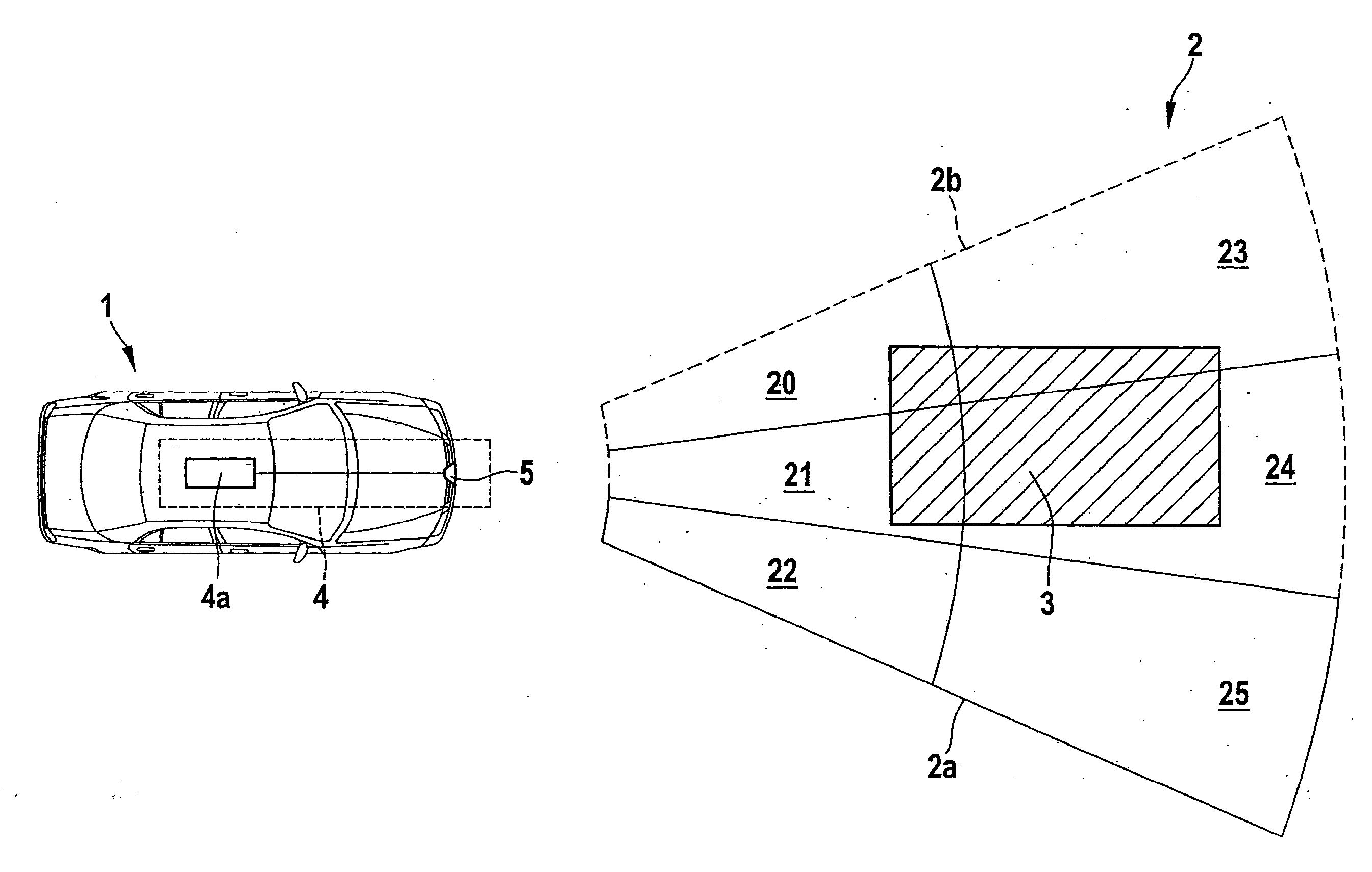Method for determining free spaces in the vicinity of a motor vehicle, in particular in the vicinity relevant to the vehicle operation
a technology for determining free spaces and motor vehicles, which is applied in the direction of process and machine control, using reradiation, instruments, etc., can solve the problems of general lack of explicit knowledge regarding passability in these regions or spaces, and adverse effect of free space information contained in a measurement or its information conten
- Summary
- Abstract
- Description
- Claims
- Application Information
AI Technical Summary
Benefits of technology
Problems solved by technology
Method used
Image
Examples
Embodiment Construction
[0024]FIG. 1 shows a motor vehicle 1 in which the method according to the present invention for determining free spaces 2a in the vicinity 2 of motor vehicle 1, in particular in the vicinity relevant to the vehicle operation, is implemented, especially for determining an evasion trajectory. This may be done within the framework of a method for collision avoidance for motor vehicle 1, in which a driving maneuver of motor vehicle 1 for avoidance is implemented autonomously or semi-autonomously or proposed during the ride in response to the approach of an object or obstacle 3 situated in an occupied space 2b. The driving maneuver is based on a collision-avoiding evasion trajectory, which is determined taking free spaces or free regions 2a into account, which are detected with the aid of the method for determining free spaces 2a in vicinity 2 of motor vehicle 1. On this basis, a device for implementing the method according to the present invention, designed as driver assistance system 4...
PUM
 Login to View More
Login to View More Abstract
Description
Claims
Application Information
 Login to View More
Login to View More - R&D
- Intellectual Property
- Life Sciences
- Materials
- Tech Scout
- Unparalleled Data Quality
- Higher Quality Content
- 60% Fewer Hallucinations
Browse by: Latest US Patents, China's latest patents, Technical Efficacy Thesaurus, Application Domain, Technology Topic, Popular Technical Reports.
© 2025 PatSnap. All rights reserved.Legal|Privacy policy|Modern Slavery Act Transparency Statement|Sitemap|About US| Contact US: help@patsnap.com



